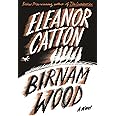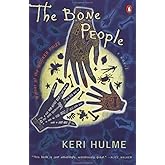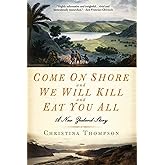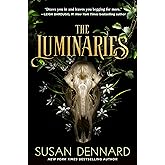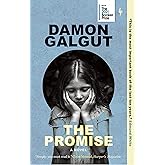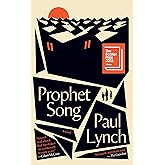
Enjoy fast, free delivery, exclusive deals, and award-winning movies & TV shows with Prime
Try Prime
and start saving today with fast, free delivery
Amazon Prime includes:
Fast, FREE Delivery is available to Prime members. To join, select "Try Amazon Prime and start saving today with Fast, FREE Delivery" below the Add to Cart button.
Amazon Prime members enjoy:- Cardmembers earn 5% Back at Amazon.com with a Prime Credit Card.
- Unlimited Free Two-Day Delivery
- Streaming of thousands of movies and TV shows with limited ads on Prime Video.
- A Kindle book to borrow for free each month - with no due dates
- Listen to over 2 million songs and hundreds of playlists
- Unlimited photo storage with anywhere access
Important: Your credit card will NOT be charged when you start your free trial or if you cancel during the trial period. If you're happy with Amazon Prime, do nothing. At the end of the free trial, your membership will automatically upgrade to a monthly membership.
Buy new:
-28% $15.79$15.79
Ships from: Amazon.com Sold by: Amazon.com
Save with Used - Good
$9.52$9.52
Ships from: Amazon Sold by: Jenson Books Inc

Download the free Kindle app and start reading Kindle books instantly on your smartphone, tablet, or computer - no Kindle device required.
Read instantly on your browser with Kindle for Web.
Using your mobile phone camera - scan the code below and download the Kindle app.

OK
 Audible sample Sample
Audible sample Sample 


The Luminaries Paperback – October 7, 2014
Purchase options and add-ons
It is 1866, and Walter Moody has come to stake his claim in New Zealand's booming gold rush. On the stormy night of his arrival, he stumbles across a tense gathering of 12 local men who have met in secret to discuss a series of unexplained events: a wealthy man has vanished, a prostitute has tried to end her life, and an enormous cache of gold has been discovered in the home of a luckless drunk. Moody is soon drawn into a network of fates and fortunes that is as complex and exquisitely ornate as the night sky.
Richly evoking a mid-nineteenth-century world of shipping, banking, and gold rush boom and bust, The Luminaries is at once a fiendishly clever ghost story, a gripping page-turner, and a thrilling novelistic achievement. It richly confirms that Eleanor Catton is one of the brightest stars in the international literary firmament.
- Print length864 pages
- LanguageEnglish
- PublisherBack Bay Books
- Publication dateOctober 7, 2014
- Dimensions6.25 x 1.5 x 9.5 inches
- ISBN-100316074292
- ISBN-13978-0316074292
The Amazon Book Review
Book recommendations, author interviews, editors' picks, and more. Read it now.
Frequently bought together

Similar items that may deliver to you quickly
 “If I have learned one thing from experience, it is this: never underestimate how extraordinarily difficult it is to understand a situation from another person’s point of view.”Highlighted by 662 Kindle readers
“If I have learned one thing from experience, it is this: never underestimate how extraordinarily difficult it is to understand a situation from another person’s point of view.”Highlighted by 662 Kindle readers Reason is no match for desire: when desire is purely and powerfully felt, it becomes a kind of reason of its own.Highlighted by 592 Kindle readers
Reason is no match for desire: when desire is purely and powerfully felt, it becomes a kind of reason of its own.Highlighted by 592 Kindle readers Disdain was useful. It gave him a fixed sense of proportion, a rightfulness to which he could appeal, and feel secure.Highlighted by 277 Kindle readers
Disdain was useful. It gave him a fixed sense of proportion, a rightfulness to which he could appeal, and feel secure.Highlighted by 277 Kindle readers
Editorial Reviews
Review
"Catton provides descriptions of her characters that are meticulous and precise...The result is a finely wrought fun house of a novel. Enjoy the ride."―Chris Bohjalian, Washington Post
"Irresistible, masterful, compelling...The Luminaries has a gripping plot that is cleverly unravelled to its satisfying conclusion, a narrative that from the first page asserts that it is firmly in control of where it is taking us...[Catton is] a mistress of plot and pacing..."―The Telegraph (5-star review)
"The type of novel that you will devour only to discover that you can't find anything of equal scope and excitement to read once you have finished...Do yourself a favour and read The Luminaries."―The Independent
"Note-perfect... [Catton's] authority and verve are so impressive that she can seemingly take us anywhere; each time, we trust her to lead us back ... A remarkable accomplishment."―Globe and Mail
"A very clever, absurdly fun novel that reads like a cross between a locked-room mystery, a spaghetti Western, a game of Sodoku, and Edwin Drood."―New York Magazine
"To say that The Luminaries is daringly ambitious in its reach and scope doesn't really do it justice."―The Wall Street Journal
About the Author
Product details
- Publisher : Back Bay Books; Reprint edition (October 7, 2014)
- Language : English
- Paperback : 864 pages
- ISBN-10 : 0316074292
- ISBN-13 : 978-0316074292
- Item Weight : 1.94 pounds
- Dimensions : 6.25 x 1.5 x 9.5 inches
- Best Sellers Rank: #67,571 in Books (See Top 100 in Books)
- #723 in Magical Realism
- #723 in Fiction Satire
- #5,301 in Literary Fiction (Books)
- Customer Reviews:
About the author

Eleanor Catton MNZM (born 24 September 1985) is a Canadian-born New Zealand author. Her second novel, The Luminaries, won the 2013 Man Booker Prize and the Governor General’s Award for Fiction and was an international bestseller. As a screenwriter, she adapted The Luminaries for television and Jane Austen’s Emma for a feature film starring Anya Taylor-Joy and directed by Autumn de Wilde. She lives in Cambridge, England.
Customer reviews
Customer Reviews, including Product Star Ratings help customers to learn more about the product and decide whether it is the right product for them.
To calculate the overall star rating and percentage breakdown by star, we don’t use a simple average. Instead, our system considers things like how recent a review is and if the reviewer bought the item on Amazon. It also analyzed reviews to verify trustworthiness.
Learn more how customers reviews work on Amazon-
Top reviews
Top reviews from the United States
There was a problem filtering reviews right now. Please try again later.
The two Chinese men, Quee Long and Sook Yongshen, have, one might say, washed up in northwestern New Zealand, the first a goldsmith and prospector, the second, proprietor of an opium den that caters to the needs of men and women most of whom work in the gold fields of that part of New Zealand, hoping for a strike that would allow them to pay their way home, wherever that might be. Neither man speaks English well nor hears it with any great comprehension, though Sook (contemptuously called "Johnny Sook" by the European citizens of Hokitika, a town existing entirely to cater to the needs of the prospectors, "Johnny" being the term of convenience that white men use to address all the Chinese workers they encounter, not unlike the "Boy" used by white men with African slaves in the South) has a better sense of the language than Quee, and that is significant to the plot.
The Maori man, Te RauTauwhare addressed as Ted, is, of course, indigenous ("native") to the land these people inhabit, and their government has designated certain parts of the land as belonging to the Maori (in practical terms, only so long as it is convenient for the white men to leave it so), and the Maori are most definitely "different"--Tauwhare's extensive body and facial tattoos are a permanent and striking reminder to everyone who encounters him of the great differences between his cultural and religious background (very little understood by the whites) and their own. Tauwhare pursues, so far as possible, the ways and customs of his ancestral people, but is treated with more respect by the white men, perhaps because of his more or less protected status, perhaps because he is dignified and formidable, perhaps just because the need of the whites to condescend to or oppress those they choose to perceive as their inferiors (and to exploit through indenture rules little less owned than slaves) is satisfied by their treatment of the Chinese men among them.
These three men, I would suggest, are the most sympathetic and emotionally appealing characters (to somewhat different degrees) in this novel, and that strikes me as a major achievement by its author. Her descriptions of them, including passages in which they speak their native languages with little translation provided, and including detailed and vivid descriptions of their feelings and the distinctive ways they perceive the world around them--notably different from the ways the whites perceive that same world--offer the reader insights and expanded perceptions not available through the eyes or minds of the more familiar white European characters. Tauwhare, in particular, because of the religious traditions of the Maori people, with their ancient and profound sense of identification with the natural world that sustains them and that they protect and preserve, worshiping its sacred character, provides a window onto the world we might not otherwise have access to. (I make no judgment about the accuracy of Eleanor Catton's portrayal of the Maori or Chinese worldviews--I believe she has taken trouble to reconstruct them based on both information and sympathetic understanding, but accuracy is not relevant to the point I am making--that these characters are successfully "other" and provide a major part of the pleasure of reading this novel.)
None of this is meant to say that the white characters are all unpleasant or evil, nor that there are none whom we might like or even identify with. The first character we meet in detail--Walter Moody, is on the whole a very sympathetic character--a decent man who finds himself more or less invited to become part of an inquiry--or one might say a conspiracy--to uncover the answers to several interlocking mysteries that have roiled the town of Hokitika, including a mysterious death, the disappearance of a prominent citizen, the possible suicide attempt of a recently arrived prostitute, the calamitous outcome of a much-promoted "seance," all having occurred along with the wreck of a barque that had arrived in port the same day as many of these events occurred.
It will not do to offer any details about these complicated interactions--a disappeared trunk perhaps lost at sea, a frightening apparition on board a foundering ship, possible forged documents, and so forth. For that is another great achievement of this novel--the creation of a richly intertwined series of events, gradually revealed through the activities of a number of different characters, each of whom is introduced to the reader in detail, with careful analyses of his or her personality and outlook, moral and philosophical views, and when appropriate, revelations about past behavior that affect the reader's view of the person and his or her likely future behavior. There is the prosperous hotel owner and pimp, a second hotel manager, the proprietor of a pharmacy who deals in opium (not illegal), men involved in various aspects of shipping industry (very important to this mining town on the New Zealand coast), the editor/publisher of the local newspaper, a banker, a magistrate, a politician engaged in an election campaign, various gold prospectors, the Governor of the Hokitika Gaol (an institution that would incorporate the functions of almshouse and asylum), and the clergyman destined to be the Chaplain of that Gaol. among others.
Three women--Lydia Greenway/Wells/Carver (a woman of various identities), Anna Wetherell, a young prostitute and opium addict, and Margaret Shepard, wife of George Shepard, the Governor of the Hokitika Asylum and Jail, a woman perceived by most to be pathologically shy--perhaps agoraphobic, though the term is not used. Each of these women is (as we learn over many pages) admirable in various ways, whether for intelligence and determination, sensitivity and emotional commitment, loyalty, perhaps even love for others. Each is also complex and imperfect in important ways. And it is fair to say that though they are all white, European, they are also, in this environment, entirely "other" and so comparable in some ways to the Chinese and Maori men.
One aspect of the novel that requires acknowledgment is the pervasive role of astrology as a point of reference. As I am not familiar, except in the most superficial way, with the arcana of this traditional "science," I have to say that the many "charts" and references to the influences affecting the various characters are mostly closed to me. Of course, one knows about the Zodiac and its signs, and the general beliefs of this ancient worldview are familiar in many contexts, especially literary, but the
finer points of the differences of influence are not familiar to me. As it happens, each of the twelve major divisions of this novel is introduced with an astrological chart "locating" twelve of the major characters for the period during which the action takes place, and we know that several of the characters, most prominently Tauwhare, take seriously the influence of the stars, or at least are willing to exploit belief in those influences. The author's introductory "Note to the Reader" offers the suggestion that stubborn adherence to a known error is characteristic of "persons born during the Age of Pisces, an age of mirrors, tenacity, instinct, twinship, and hidden things." That description of the qualities of the Piscean age would also make a very nice summary of the qualities of this narrative, all of which make it so fascinating.
It is right to call The Luminaries a thriller, and I would suggest it is a thriller of a traditional kind. If it had been published in weekly chapters in a periodical, like the novels of Charles Dickens or Wilkie Collins or many others of the late 19th century, its way of proceeding and its regular approach to what we would call cliffhangers would perfectly suit it to that genre. While many might invoke the memory of Dickens as comparison for this novel, I think its intricacy and rapid movement make it more akin to Wilkie Collins's best work, The Moonstone, perhaps, or Woman in White, though it also has affinities with late Dickens, Mystery of Edwin Drood, especially. I also am inclined to speculate that we might anticipate a sequel. While certain parts of the plot are "solved" and the problems resolved, there are several characters and situations notably left hanging, with uncertain outcomes, and those would more than supply material for a following novel, if the author chooses.
Long works of prose fiction ("big books," or maxi-novels) such as this can provide many different kinds of pleasure. In this case, the fascinating characters, the exotic setting, the constant twists and turns of the plot, the uncertain identities and surprising revelations, all contribute to a narrative that pleases by confounding the reader, who is compelled, indeed propelled to keep on reading, even at the risk of missing pertinent details. I found myself checking back to earlier chapters, preceding bits of dialogue or description, time and again, to assure myself that I was not entirely lost or wrong about developments. This was not a fault or a failure of the narrative--it was one of its genuine rewards. While this novel has important things to say about human relationships, it is not profound; we do not keep reading in hopes of the depth of a Dostoevsky, the refinement of a Henry James, the historical sweep of a Tolstoy; we are rather entertained and moved, and we feel satisfied.
This book has no soul, no heart. However, this is not unusual for the last ten years. I am seeing this lack of emotional connection in almost all of the novels that have been literary award winners in the decades of the `ott' years, the 21st century. Is it a coincidence that these books are written by graduates of the same recommended MFA programs? These novels are technically brilliant, reflect accurate history and deep research, are challenging to read, always include obvious `Great Literature' themes ad nauseam, but the biggest clue of all to the literary training of the authors is every character in the novel is cold, complex and unlovable. Often, the plots are convoluted, textually dense, and packed with multi-layered metafictional embellishments. The characters are mostly defined by their direct activities and initially shadowy histories and alternating flashbacks which reveal the why of internal abnormal psychological thinking. To move the story forward, the writers depend heavily on Point of View changes, usually using three different character narrations and types of voices (I, You, He/She). The books are loaded with literary ornamentation and stylistic phrasing. The chapters may be 20 pages long, then they playfully begin to be only one paragraph or one sentence. Whether the font begins to vary size or turn into shapes conveying emotion and intent, the glorious sentences and the technical virtuosity are gorgeous and thrilling.
It is all Great Literature by the numbers, almost literally, in every sense of the word. This book, as are most of the award winners of late, strike me as mathematically algebraic on several levels - plot points, architectural, literal (`The Luminaries' has cute astronomy links to its characters, motivations, through indirect planetary movements). I discovered if you typed the chapter titles into Google, the search engine came up with astrological charts and deciphering explanations. If the reader is curious or obsessive, one can waste time checking with googled astrology information to match it to the book's characters and activities. In an author's note in the back, she mentions researching the mathematical concept of "the golden ratio', which apparently has a 3,000 year pedigree in the Arts. That is fascinating, really.
Eleanor Catton's research is phenomenal about getting the Victorian tone down, in the setting's New Zealand place and 19th century time, astrological playfulness, and in the novel's construction. The book is intricate, intelligent and challenging to read, with multiple points of view that serve in carrying the plot's baton forward. Catton is a talented writer, and the book is a wonderful read. However, the characters are without much of a pulse. Francis Carver and Lydia Wells, two characters out of a cast of dozens, were the only people who had any forward motion, and as such were of most interest to me. But all of the characters were pieces in a puzzle, including these two, and not flesh and blood. No person acted entirely as rationally or irrationally as real people living in the real world. Everyone was there to serve the author's larger purpose of creating a literary Rubik's Cube.
The meeting is attended by twelve of the characters, each of whom we get to know, and they each had a reason to murder an alcoholic miner, Crosbie Wells, if he was murdered. They don't trust each other and they all are keeping secrets about their activities and acquaintances. With the exception of Te Rau Tauwhare, a New Zealand native, all of the characters live in New Zealand to make money, and most intend to move on once they've made their money. The main source of potential wealth is the mining of gold, but since mining is extremely physical, most of the characters are making money from providing services that the miners need: hotels, food, sex, clothes, supplies. As the plot thickens, the characters bounce off of each other like billiard balls, muddying the underlying mysteries of whether Crosbie Wells, was murdered, or if he had been married, or if he had left a will. A little over 4,000 dollars worth of gold bars was found in his shack, and it becomes apparent half of the characters had a reason to either kill him or steal from him. The community is very small, so everybody is linked by their needs and wants, even if they do not directly know each other. The plot actually meanders around following this person, then that person, slowly revealing links and interests, histories and connections. But I felt like I was floating around in a vast river drainage basin, not a single stream or its tributaries. Every character's place in the story is that of a baton carrier in a relay race, except the track disappears along with my interest.
Don't worry, reader. The hundreds of pages do come to a conclusion, the Rubik's puzzle sections revolve until the colored squares line up. Many readers love this book. I was unsatisfied, but it is an expertly written literary experience, and I was curious enough to finish it.
Top reviews from other countries
Die Ereignisse werden beleuchtet aus der Erzählsicht der unterschiedlichen Charaktere, ohne dass außer für den Leser für diese Charaktere die Informationen zusammengetragen werden.
Das Buch ist bisschen historisch, Krimi, Mystik, Liebe, Tragik
Ohne in eines der Felder tief einzutauchen oder abzugleiten
Anfangs langsam, fast sperrig nimmt es an Fahrt auf und liest sich flüssig fast spannend
Ich mag die Besonderheit der Sprache (ich habe es allerdings im Original gelesen)
Wie bei dem Kreis der Sternzeichen sind die Charaktere angeordnet, man bewegt sich immer schneller durch die einzelnen Felder. Die letzten Kapitel sind nur noch eine Seite lang manchmal.
Ich kann das Buch empfehlen, wenn man sich darauf einlässt, langsam einzutauchen. Ein bisschen Geduld braucht es schon
The book is essentially a mystery set in the New Zealand gold fields of the 19th century. The plot weaves though many well defined characters, with mysteries multiplying like images in a hall of mirrors. The writing is superb, the characters are totally three dimensional and the plot sucks you right in.
You can read this book on several levels, all of which are extremely satisfying.




